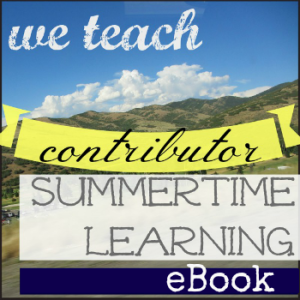When German Frederick Froebel created kindergarten in the 1800s, little could he have envisioned what it would become. Those first kindergarten students, indeed the first children to experience early childhood education, learned through play, music, movement, paper-folding and games. Froebel recognized that early childhood was a a period of dramatic brain development during which children thrived when they learned holistically. His work influenced Maria Montessori, Rudolf Steiner (whose work led to Waldorf Schools), and the Reggio Emilia approach to education, all of which are popular and well regarded today.

Kindergarten, as recently as many of our own childhoods, was a laboratory of discovery and wonder, social skills and play. It was not viewed solely as preparation for grade school.
Fast-forward 150+ years since Froebel to arrive at a time in which not only is kindergarten regarded as preparation for grade school, but preschool is considered preparation for kindergarten. Online parent message boards are crammed with questions from anxious parents, asking, “Is my child ready for kindergarten?” Kindergarten readiness tests and commercial kits denote and teach multiple precise skills children should know before starting kindergarten, including the abilities to count from 1 to 10, identify colors, cut with scissors, create rhyming sounds, and skip.
Yes, skip. This piece of information includes the especially ridiculous coda that pre-school children around the U.S. are being taught to skip, in order to prepare them for kindergarten. Sadly, many children do not have enough outdoor play and free time to develop this skill on their own and are now taught it, not as a joyous life skill, but as part of the readiness curriculum.

But what if “readiness curriculum” emphasizes the wrong things? Perhaps our anxieties about “kindergarten readiness” and our rush toward academics for our kids are fueled by our own desires and fears, rather than by education and early childhood theory. We are taught early that there is tremendous competition for college spots and for jobs. Because we’re often busy ourselves, we view time as something to be used efficiently, even and perhaps especially in regard to our children and their childhoods.

In addition, parents today are led to believe that we have to choose between academic preschools and play-based preschools. But what if the play-based schools actually fed children’s academic, social and physical needs and success? According to studies, that’s exactly what they do.
Professor Jeffrey Trawick-Smith of The Center for Early Childhood Education writes that “Play is necessary for success in school” and that play enhances language and literacy, counting and math, symbolic thought, cooperation, self-awareness and self-control. Longitudinal studies show that even the gains achieved by some academic preschools are largely lost by third or fourth grade.
If that weren’t enough, recent studies also show that today’s preschoolers spend only 2-3% of their time doing vigorous activity. In our rush toward what many of us think of as academic achievement and readiness, we’re actually robbing many young children of the ability to learn the way they do best — through play.

Alison Gopnik, psychology professor and author of The Philosophical Baby: What Children’s Minds Tell Us About Truth, Love, and the Meaning of Life, refers to “guided discovery”, the notion that small children learn best through exploration and interaction, wonder and play. Schools teach mastery, which is wonderful, writes Gopnick, but mastery should follow discovery. She uses an example from baseball:
Routinized learning is not an end in itself. A good coach may well make his players throw the ball to first base 50 times or swing again and again in the batting cage. That will help, but by itself it won’t make a strong player. The game itself — reacting to different pitches, strategizing about base running — requires thought, flexibility and inventiveness.
How do we encourage qualities like thought, flexibility and inventiveness in our young people, the very qualities that underlie later academic and other success? Let them play when they’re young, when their brains are elastic and they learn best through exploration. Encourage various social, physical and other experiences that enhance children’s natural senses of curiosity and wonder. Allow them to move their bodies more, especially in nature when possible, and not be unnecessarily (and unnaturally) sedentary. Studies show that even older elementary students need recess and play and that physical activity helps them perform better academically.
It seems that letting preschoolers be preschoolers is the least — and the most — we can do for them.

Photos: Let the Children Play, Creative Child, Susan Sachs Lipman, Let the Children Play, Academic Advancement
For more information see:
Resources about Play and Slowing
News about Play and Slowing
You might also be interested in:
Slow News: Let the Kids Play
Pre-school and Kindergarten Graduations: Too Much Too Fast?
Movement to Restore Free Play Gains Momentum
Children Opt for the Box Over the Toy
Babies Learn By Playing
New Childrens Book Reminds Us to Play































